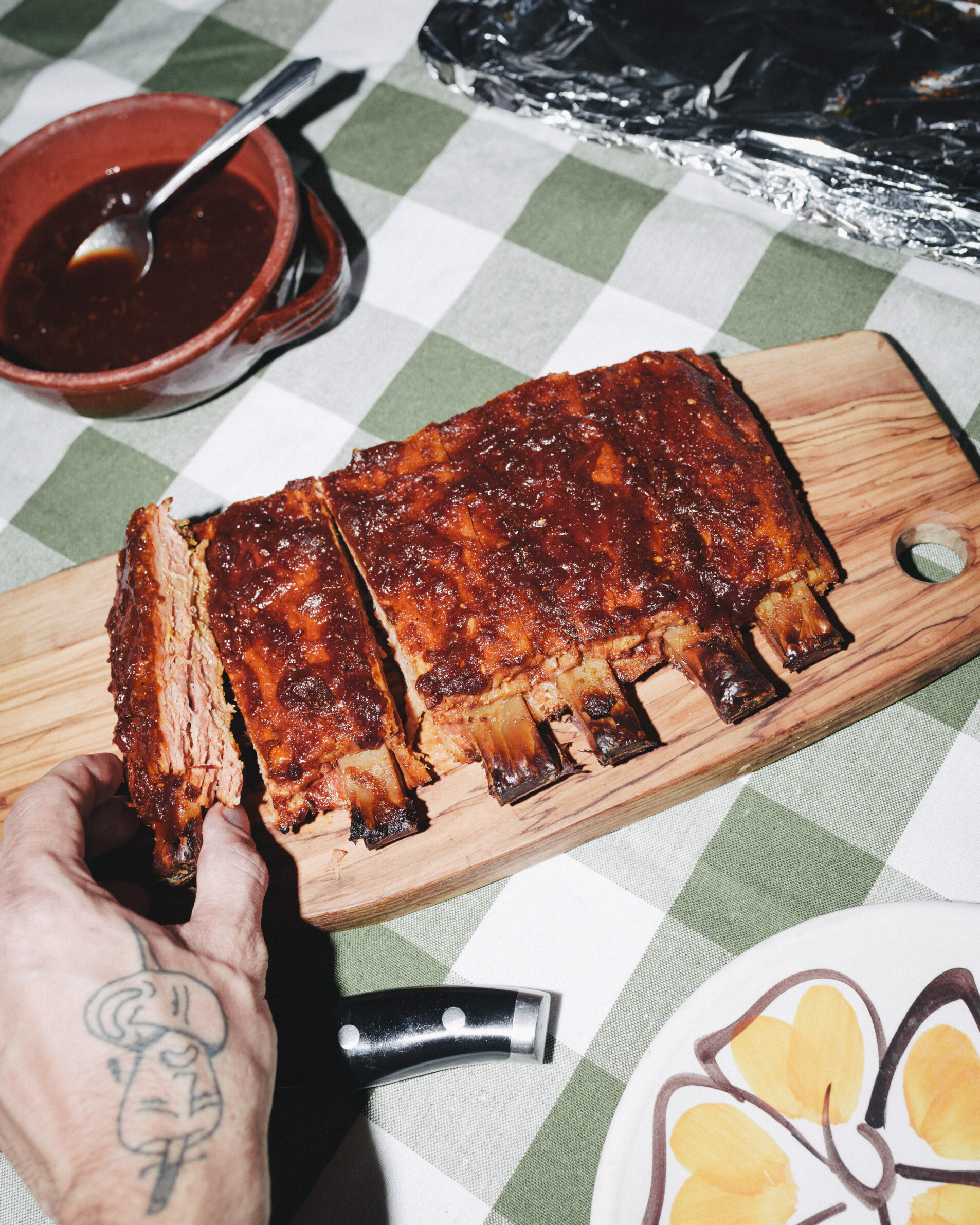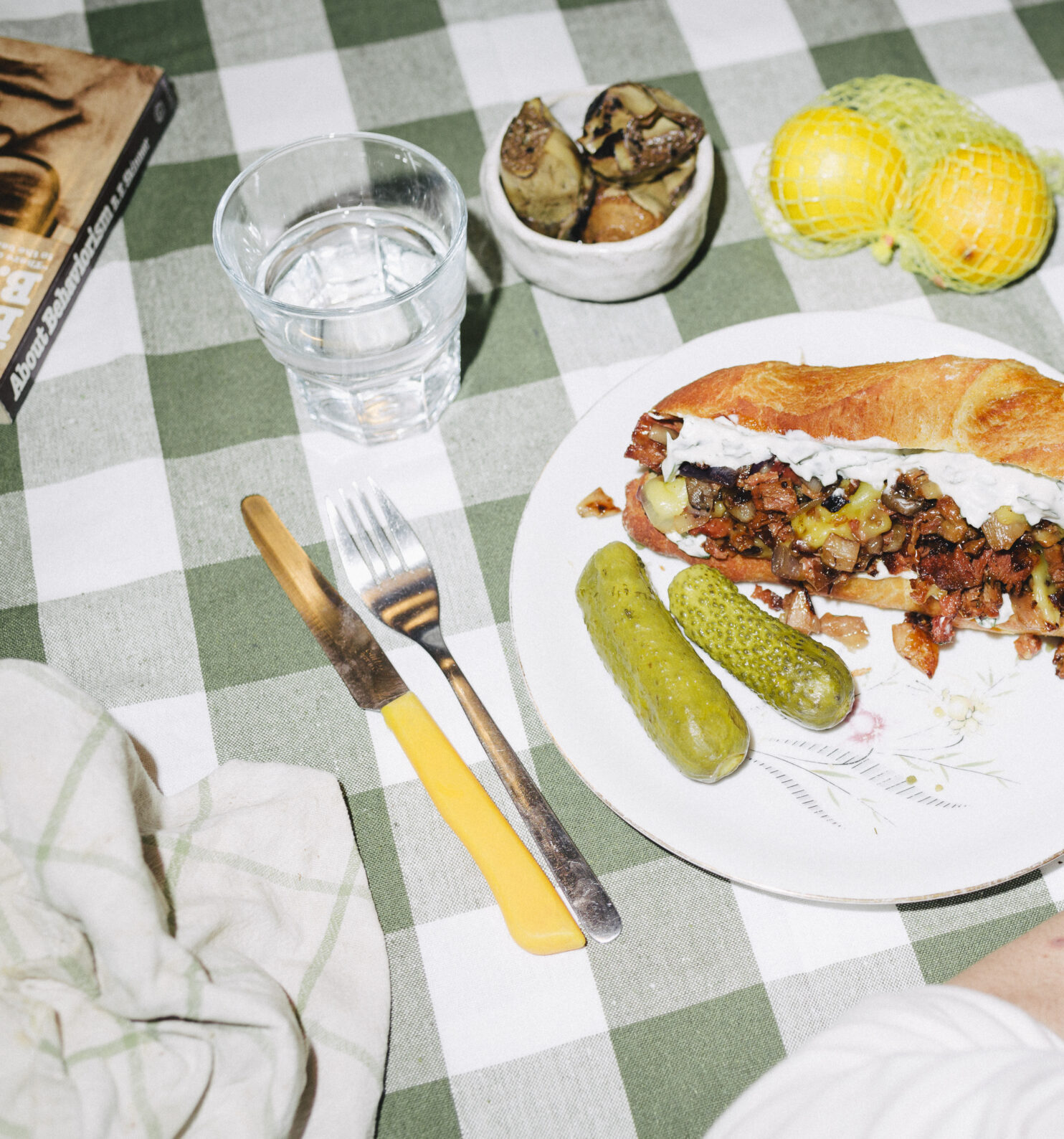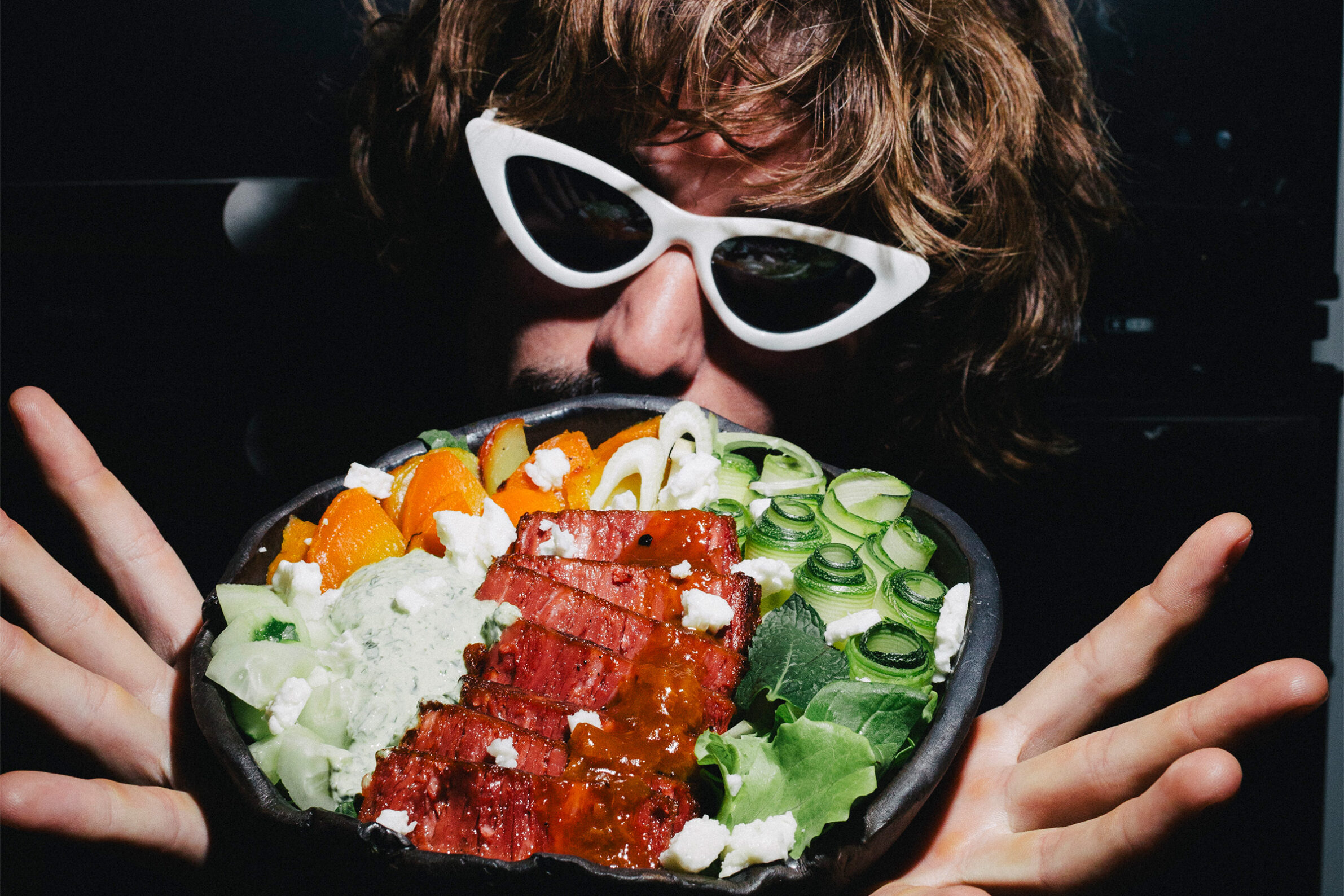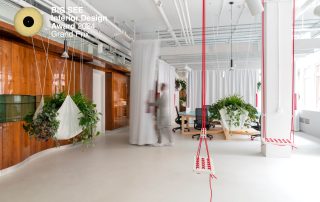Irreverently responsible, smashing good plant-based meat
The title of this article is a very typical line of Vladimir Mićković’s. For a visual communications designer he has a very, well, graphic style of expression, and the reader is warmly encouraged to see it for themselves in the blog section of the Juicy Marbles website.
The Juicy Marbles company is based near Ljubljana, the capital of Slovenia. It is currently producing around a tonne of plant-based meat – mostly soy – meat daily, selling about a half in America and a half in Europe. The business is growing nicely, and the product range itself has grown from marbles (“thick-cut filet”) to muscle (“whole-cut loin”) and even ribs on the (edible, plant-based) bone.
By the way, as Vladimir is quick to point out, plant-based meat should not be confused with “cultured meat, also known as cultivated meat, which is a form of cellular agriculture where meat is produced by culturing animal cells in vitro”. This technology – not exactly vegetarian – has experienced a huge boom and bust in the last decade and is still nowhere near a viable commercial model, let alone actual production. Plant-based meat is a totally different story, one that works.
In other words, if you are thinking about switching to a meat alternative in order to reduce your carbon footprint, plant-based options are the only serious solution. And by some estimates, the meat industry’s environmental impact is second to none. Though even if it were third or fourth, it is the one that is way less complicated to reduce than others: anyone can do it in their own kitchen and when ordering in restaurants.
From home to office
Vladimir joined Juicy Marbles in its early days, when his vegan restaurant in Ljubljana – Kucha, a house and a home in Croatian and Serbian – did not make it through the COVID lockdowns, despite the success it had seen in the previous two years. He jumped on board with three food scientists who had the technological know-how, but were aware that successful brands don’t thrive on science alone. So Vladimir brought a restaurateur’s feel-good flair, his branding mojo, and the lived experience of the dangers of a great idea crashing-and-burning due to totally unforeseen circumstances.
Kucha was not just another vegan restaurant, it was great eatery which chose to serve vegan food that tasted good and felt good, and not only because the place was cosy and relaxed. Doing no harm to animals was no after-thought in this project, but something that came along as naturally as restaurants not shooting their customers.
The smarts that put all that real meat on the table
This brings us back to Juicy Marble’s blog, which is mostly written by Vladimir, and the fact that quite a lot has already been reported about horrors of the meat-packing industry, starting as early as 1906 with Upton Sinclair’s novel The Jungle. In addition to being literally lethal for animals, the industry is also three times more dangerous for workers than your average factory floor. It’s also proven to cause mental health issues for both workers and their families – a fact that gets conveniently ignored – and due to the extreme conditions the industry often employs people who cannot get work elsewhere, such as recent immigrants, the poorly educated and unskilled. There’s no light reading when it comes to how meat is produced, but it certainly makes us think about what we eat, and what could be improved.
Which in turn brings us to a fork in the narrative: one side points towards a way out of this and keeps us well fed on great tasting food without being another link of the interminable chain of killing and suffering, while the other dwells on the oft-heard complaint that once everything is said and done plant-based meat is still processed food, while a straight piece of meat is, well, a straight piece of an actual animal. A dead one, to be sure, but not highly processed, either. Right?
Here the (somewhat) fun part starts: the “not processed” bit is plain wrong. It is actually quite possibly a lie, albeit a carefully cultivated and planted (force-fed feels more like it) one. Apart from precious rare animals who really graze idyllic pastures, the vast majority of farmed animals live in dismal conditions, designed to maximise output. They are not fed colourful meadow flowers and succulent grass, but a diet of – you’ve guessed it! – processed grain and other plant or animal feed, designed to speed up growth of animals, bred to super-size the desired cuts of meat, and minimise everything else, as these miserable “products” can hardly move as they grow.
To use the old saying about being what one eats: plant-based meat is actually much less processed than the feed for those poor creatures who were bred via factory conception (yes, that as well) and finally rapid processing (what else would you call their lives – and after lives, too?) I don’t know about you, but chopping, mixing, heating, cooling and shaping some soy protein, then adding some red beet juice and sunflower oil, doesn’t sound too horrible to me in comparison.
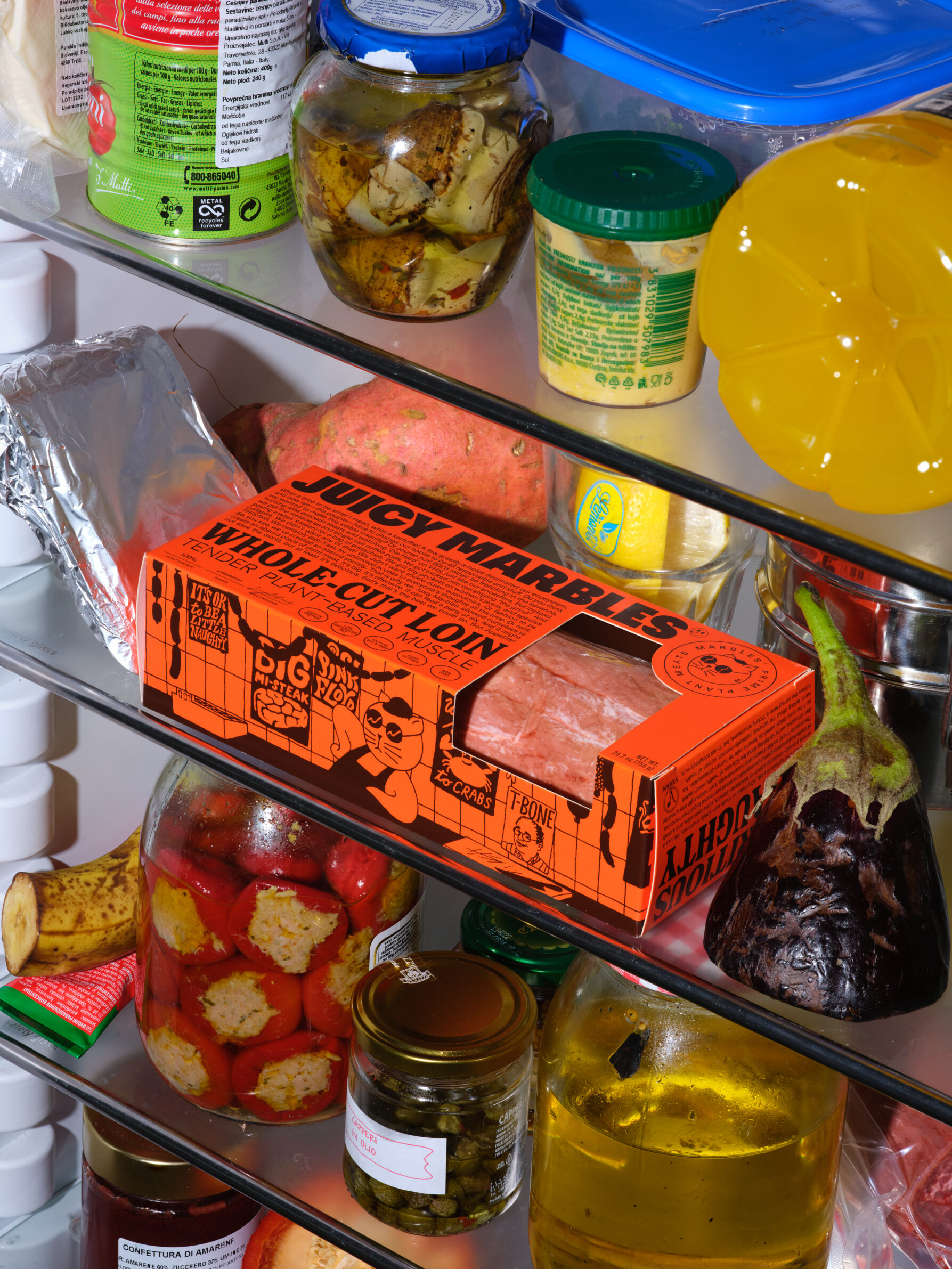
Guys too good for anyone’s use
And now back to Vladimir and Juicy Marbles. He actually started thinking about opening a vegan restaurant because he was fed up with vegan activists: “Over the years I’ve come to understand that my early cynical response to vegans was never to vegans. It was to preachy, self-aggrandising, and narcissistic people.” Meaning it was all about them and their desire to do – and above all to be seen to do – good, instead of animal welfare and above all about a good life shared with others.
And thus Juicy Marbles chose not to win over customers by playing on negative feelings and horrible stories, but by making vegan food that tastes great, that is fun, has just as much taste, aroma and texture as the most glorious of meats.
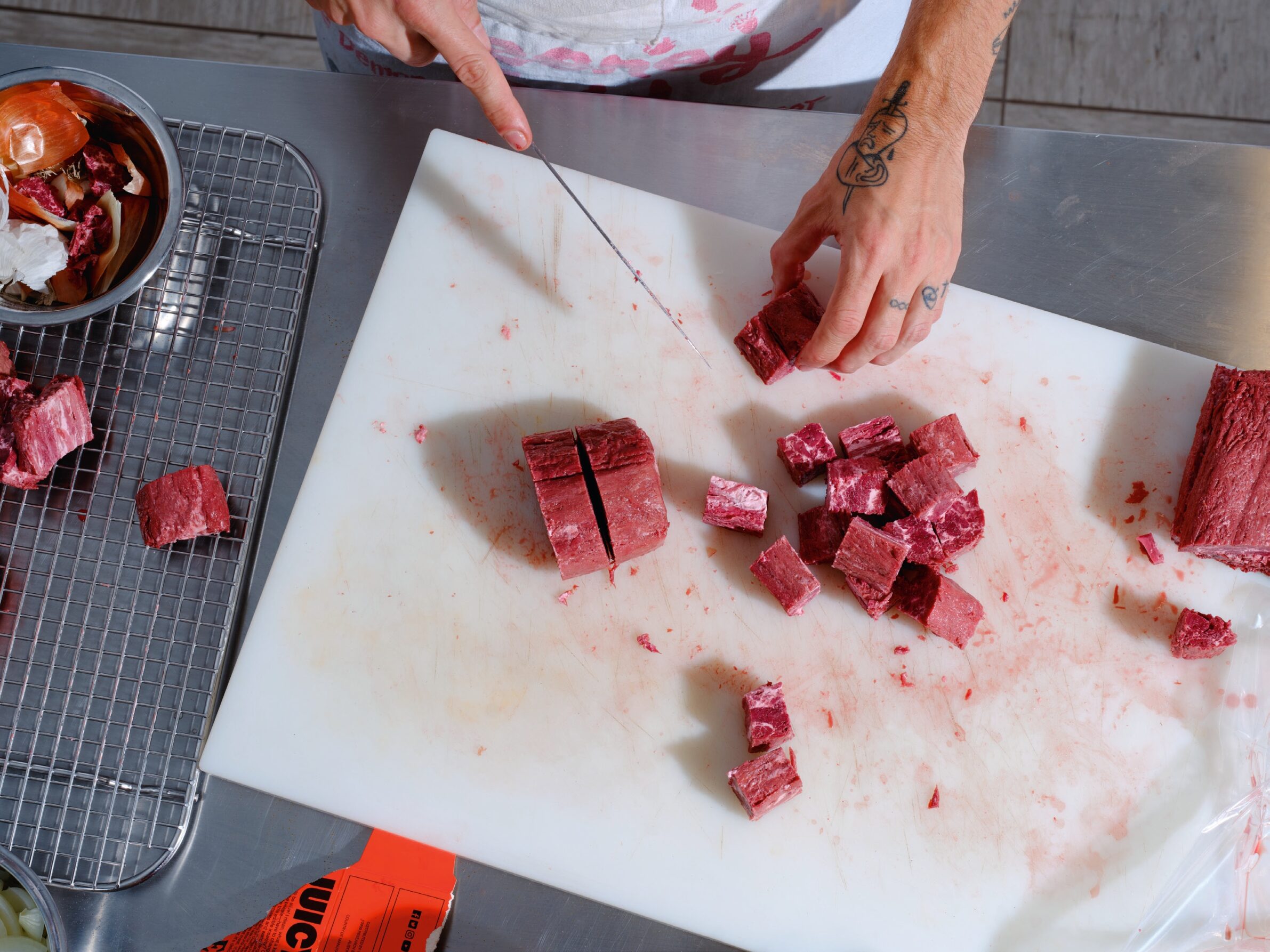
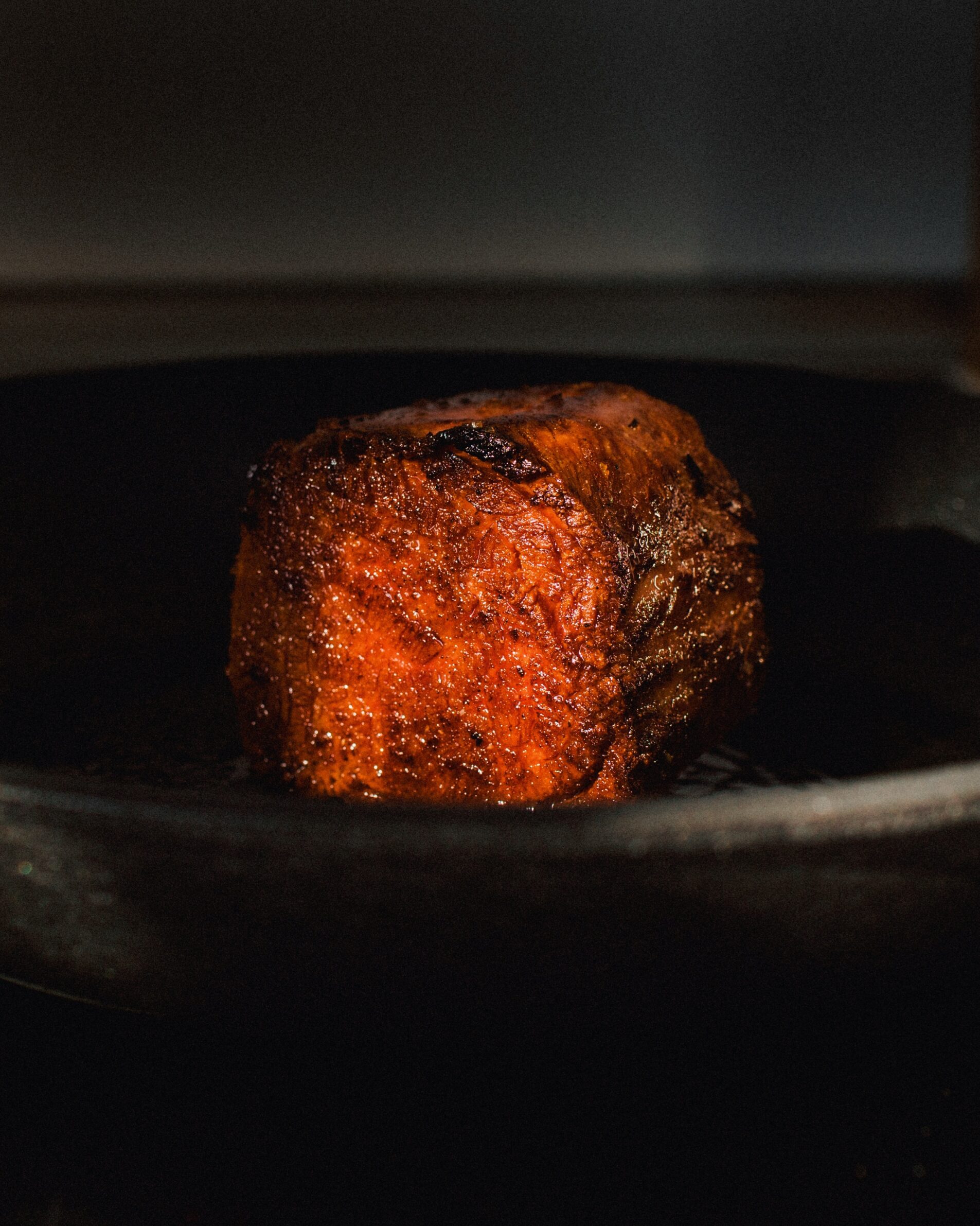
The company’s tone of voice is just as “feel good” as the product it makes. All communication is light-hearted and humorous, the visual identity is wink-wink naughty, and the stated goal is to remain just as irreverent irrespective of the company’s growth.
Around 300 BC Epicurus taught that “it is not possible to live pleasurably without living sensibly and nobly and justly – and neither to live sensibly and nobly and justly without living pleasurably.”
Yes, those Greeks pretty much nailed philosophy. Which sort of makes one wonder, why did it trake the better part of following two and a half millennia to figure out meat without killing?
